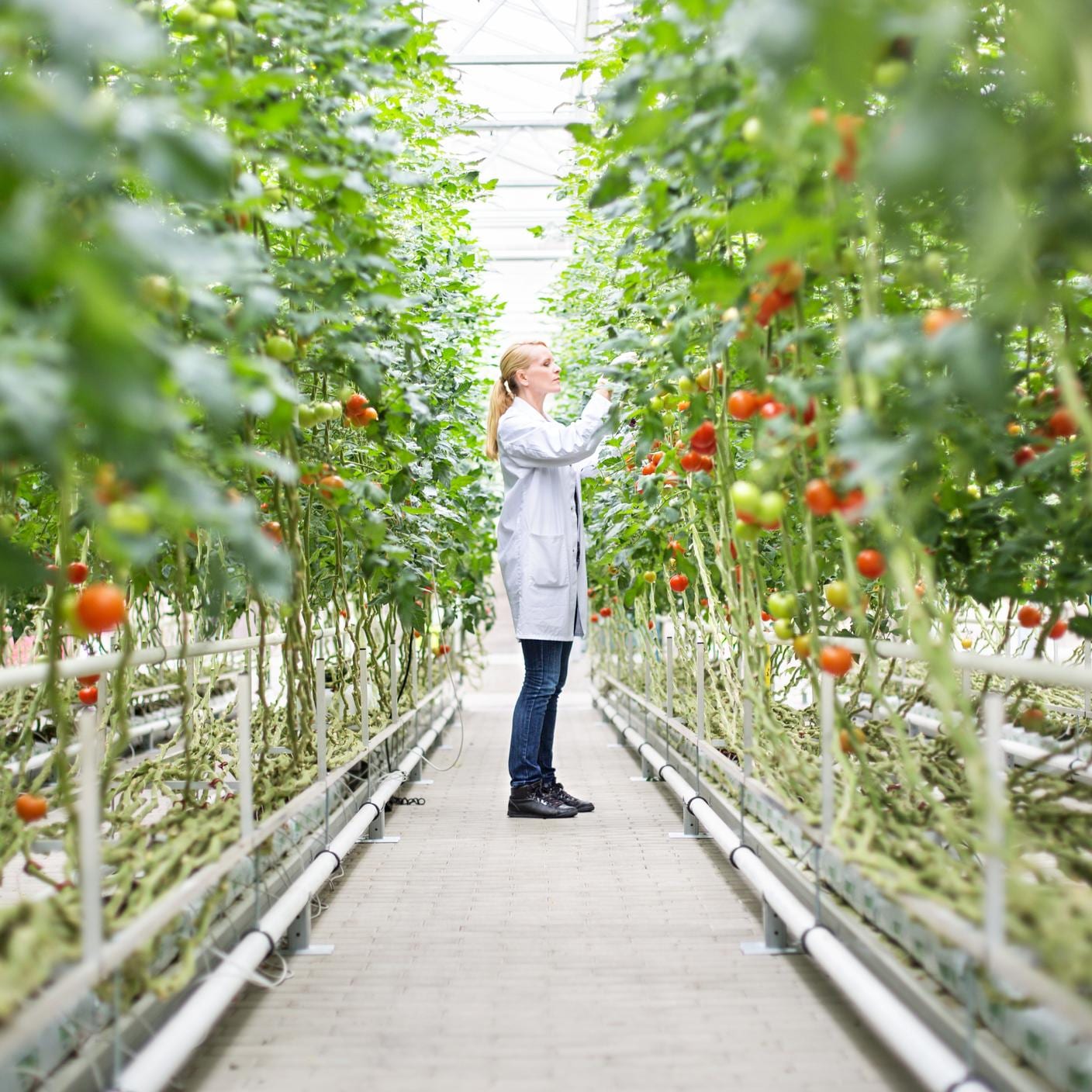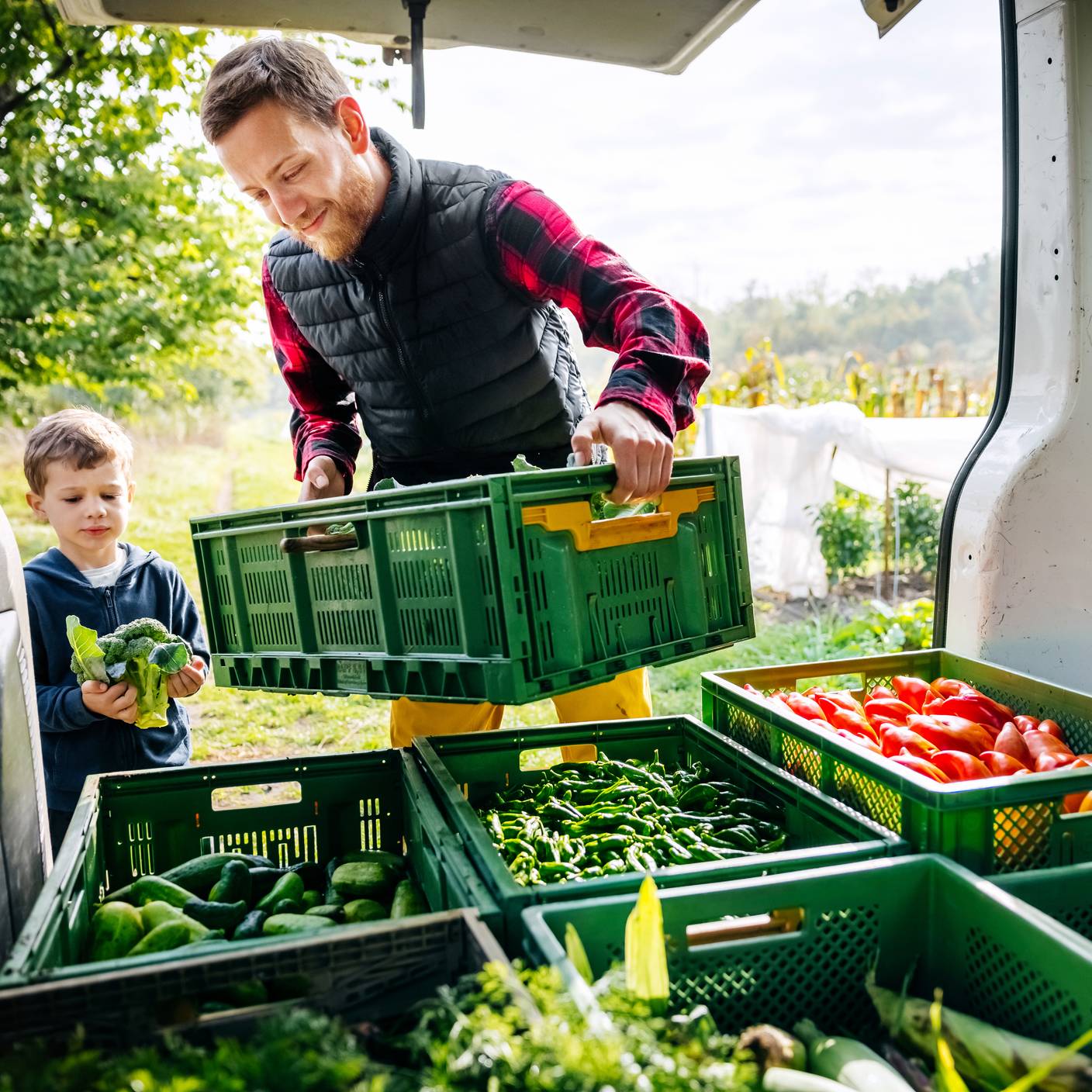Food demands from consumers are changing more rapidly than ever. Increased health, ethical and environmental conscientiousness is driving demands for sustainable foods that offer excellent nutrition.
These demands are set to have long-term effects on the way we produce our food, notably in the areas of plant-based and alternative proteins, sustainable farming practices and the development of functional foods.
BSI helps government and industry adapt to these changes by supporting innovation in the food sector, especially around the manufacture of new food products, health and safety, supply chain management and sustainability.
Plant-based proteins
The UK's plant-based food retail market stands out as one of the largest in Europe, experiencing a substantial 9% growth in the value of plant-based food sales, reaching £963.8 million from 2020 to 2022. This growth aligns with the increasing adoption of meat-free diets, as evidenced by the proportion of UK adults following such diets reaching 14% in 2023. Moreover, the UK holds the second-highest share of vegetarians globally, constituting 7% of the population. Looking ahead, the trend toward plant-based consumption is expected to persist, with the volume of meat substitutes projected to grow by approximately 50% between 2023 and 2028. This growth is primarily driven by the demand from Millennials and Gen Zs, who prioritize adopting a more sustainable, ethical, and healthier diet.
Soy and wheat protein ingredients compose nearly two-thirds and nearly one-third respectively of the global meat-free ingredient category. But there are a range of other plant proteins that can be utilised to give manufacturers a broader range of options to create protein-enriched plant-based products and meat or dairy substitutes.
Each protein has different qualities, and the selection ultimately depends on the final product. For example, when developing a meat analogue using extrusion, a protein with low or intermediate solubility can be applied. However, in the formulation of a cheese or yogurt dairy alternative, a plant protein with high solubility that can also aggregate and form a gel is needed.
The race is now on to understand the flavour, nutritional properties, and functionality of emerging plant proteins. For example, pea proteins, although currently a small fraction in comparison, have been growing in importance. Most commonly used as a soy alternative in protein shakes, there is plenty of potential to see pea protein used to enrich general foods.
Standards and regulations are a tremendous driving force for development and innovation in the food sector as they provide a common reference point and ways of applying best practices in communication and labelling. For example, the internationally applicable standard, PAS 224:2020, 100% plant-based foods – Characteristics and composition – Code of practice, sets out the agreed terms and definitions, principles and recommendations on manufacturing, presentation and claims in relation to 100% plant-based foods.
Alternative proteins
While plant-based protein can meet consumers’ ethical needs, the intense farming methods needed to produce certain crops might take away from the sustainability credentials of some of these products.
In the future, alternative protein sources such as lab-grown meat and insect protein could become viable mainstream options, as they may well be able to demonstrate good ethical and sustainability credentials in their turn.
According to research by the Food Standards Agency, a third of UK consumers would try cultured meat, and a quarter would try edible insects. Of those that stated they were unwilling to try an alternative protein, over a quarter (27%) could be persuaded if they knew it was safe to eat and 23% if they could trust that it was properly regulated.
Agreed international standards and proper regulation are key to gaining consumer trust for product developments in this area. BSI has already worked with leading organizations to create standards that establish trust and credibility in producing and distributing food. To find out more about creating a fast-track standard, download our brochure.
Sustainably sourced ingredients
There are many facets of sustainability with regards to farming and food production. From waste management and nose-to-tail eating to eco-friendly packaging and carbon-neutral agriculture.
Many of our current food production methods are unsustainable in the long term due to land use practices, fertility, and diminishing resources. Without plenty of fertile land, it’s not possible to grow the amount of food needed to feed our rapidly growing population. Naturally occurring plains of fertile land are now few and far between, and fruit, vegetable and grain production has been shown to contribute to deforestation.
Crop farming is not the only culprit. Livestock require a lot of space and finding somewhere for these animals to graze often leads to as much deforestation as using the land to grow produce.
But as leaders representing over 85% of the world’s forests committed to halting and reversing deforestation and land degradation by 2030 at COP26, the food industry must evolve and adapt, paying particular attention to where raw ingredients come from – and if any alternatives exist.
It’s not just at producer level where sustainability credentials can be improved. In the UK, for every kilogram of meat that is consumed, there is a corresponding kilogram of inedible meat by-product that must be disposed of. A circular economy for food mimics natural systems of regeneration so that waste becomes feedstock for another cycle. By-products that are free from contaminants can be safely returned to the soil as organic fertiliser. Some by-products can provide additional value at different points in the processing chain – for example by creating ingredients for new human or animal food products, fabrics for the fashion industry, or as sources of bioenergy.
The effective management of waste streams across the food supply chain is paramount. Cultivating a circular economy and gaining verification for reduced CO2 emissions is key to gaining consumer confidence.
Fortified functional foods
Health-conscious consumers are looking to pack as much into every bite as possible with the global functional foods market expected to exceed USD 212.65 billion in 2028.
Functional foods and ingredients provide enhanced benefits beyond their fundamental nutritional value. Product types include supplements and beverages, among other related food products which can support the immune system, cognitive function, and critical metabolic pathways. These can help consumers to improve their wellbeing and achieve healthier lifestyle goals.
Technological innovations in the functional food ingredients industry are driven by various techniques, such as encapsulation, nanoencapsulation, and bioencapsulation. These methods can protect the ingredients’ vulnerability to destruction in the environment or ensure that the constituent remains ‘bioavailable’ after processing.
As the market for supplements and functional foods grows, and improved manufacturing technology allows for more diverse fortification of foods, it’s important that clear standards define quality to offer consumers both clarity and reassurance.
Standards such as the recent PAS 233 for zinc-enriched grains is an example of where industry standardisation can support the production of foods and ingredients that can improve the population’s health and wellbeing.








